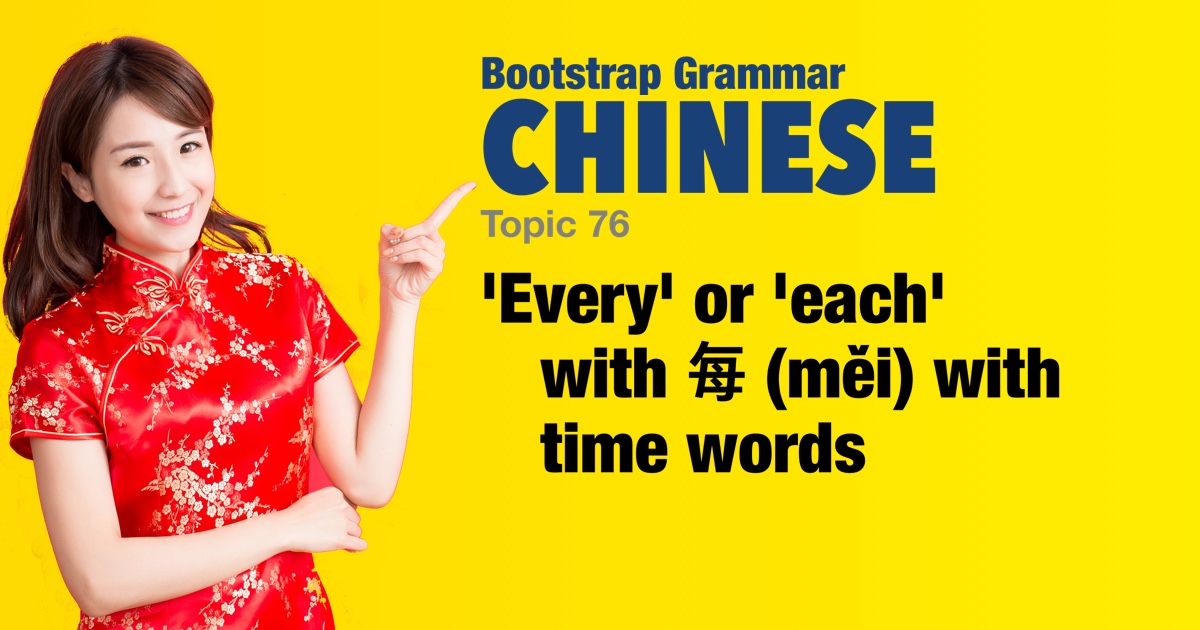Chinese grammar - 'Every' or 'each' with 每 (měi) with time words |
|||
|
|||
The Chinese word 每 (měi) can be used to indicate regular intervals of time or frequency. When referring to time, 每 is followed by a time measure word. — For example, 每 + 天 means 'every day'. When used in this way, a measure word (classifier) is not required. |
| Examples: | |
|
我每天喝咖啡。
wǒ měi tiān hē kāfēi. I drink coffee every day. |
|
|
她每周去图书馆。
tā měi zhōu qù túshūguǎn. She goes to the library every week.
|
|
|
我们每月开会。
wǒmen měi yuè kāi huì. We have meetings every month.
|
|
|
他每年去新西兰旅行。
tā měi nián qù Xīnxīlán lǚxíng. He travels to New Zealand every year.
|
|
|
她每天锻炼。
tā měi tiān duànliàn. She exercises every day.
|
|
|
我每周见父母。
wǒ měi zhōu jiàn fùmǔ. I see my parents every week. |
|
|
商店每天开门。
shāngdiàn měi tiān kāimén. The shop is open every day.
|
|
|
他每年拜访朋友。
tā měi nián bàifǎng péngyǒu. He visits friends every year.
|
|
|
她每天学习汉语。
tā měi tiān xuéxí Hànyǔ. She studies Chinese every day. |
|
|
每次上课,我都带书。
měi cì shàngkè,#wǒ dōu dài shū. Every time (I) go to class, I bring my book. |
|
|
每次我去上海,我都吃饺子。
měi cì wǒ qù Shànghǎi,#wǒ dōu chī jiǎozi. Every time I go to Shanghai, I eat dumplings. |
|
 |
|



